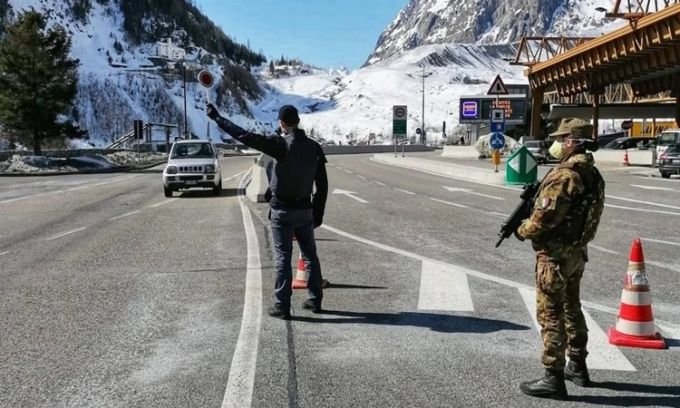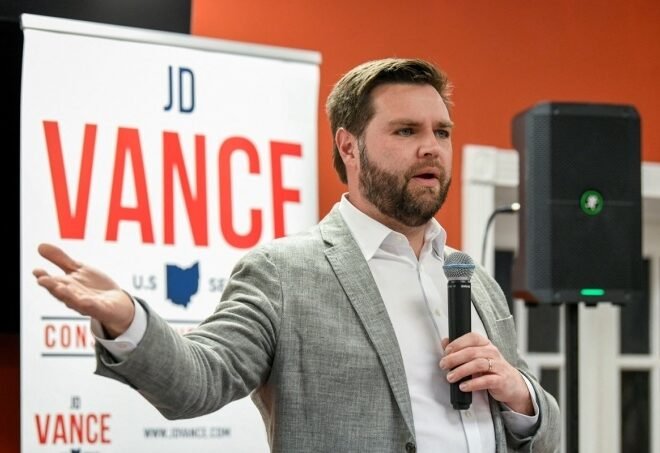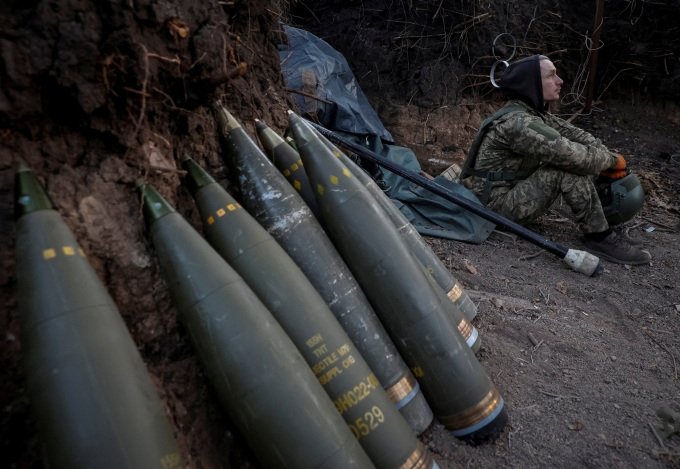
Europe is in turmoil as it closes its borders
Modern Europe is built on the idea of binding the countries of the region together by eliminating borders.
The EU has agreed to impose a 30-day entry ban on non-citizens in the bloc to prevent the spread of nCoV.
Trucks from Germany to Poland lined up at the border on March 17.
Until last week, EU citizens could still move easily across the continent despite signs that nCoV was spreading rapidly.
Because European countries are now closely dependent on each other, many no longer built on a self-sufficient basis, producing everything they need, the impact of internal blockades could be swift.
Trucks carrying goods from Germany and Poland yesterday had to queue for 40 kilometers as Polish border guards checked the drivers’ temperature, overall health and other documents before allowing them to clear customs.
Meanwhile, Estonia, Latvia and Lithuania, three countries only connected to the rest of Europe through Poland, had to mount a rescue operation by air and sea to bring their citizens home.
`The situation is very difficult,` said Latvian Foreign Minister Edgars Rinkevics.
Analysts assess that another major risk from the measure of re-imposing border control is that medical supplies needed to fight nCoV will be stuck at the border gate, thereby weakening the ability to cope with the crisis.
EU citizens are trapped `within Europe itself and this must stop`, European Commission President Ursula von der Leyen emphasized.
European leaders on March 17 spent three hours discussing border issues as well as goods congestion.
But Europe’s problems are not just logistical.

After EU leaders spoke out convincingly, Paris and Berlin relaxed the ban.
`For the EU, this is truly an existential threat,` commented Stefano Stefanini, a former diplomat now working as a security advisor in Brussels.
`The sense of European solidarity is shaken when your neighbor refuses to export medical equipment,` Stefanini said.
Outside the EU, Serbian President Aleksandar Vucic reacted harshly to the news that the EU last weekend imposed a bloc-wide export ban on protective equipment for medical workers such as masks or protective clothing.
`International solidarity does not exist. European solidarity does not exist,` President Vucic said.
According to some analysts, the EU’s challenges will gradually decrease over time as the entire bloc can adapt to the new context.
Border police conduct vehicle checks at the Mont Blanc tunnel in Courmayeur, Italy, March 17.
However, Daniela Schwarzer, head of the German Council on Foreign Relations, said the current situation is `not positive` as the governments of the countries have not really cooperated with each other.
The EU `is trying to promote intra-regional cooperation in handling the crisis, but if governments refuse to shake hands, this will be extremely difficult,` Schwarzer said.
On the other hand, policymakers also warn that once internal borders are erected because of the epidemic, it will be very difficult to bring them down.
`When will we be ready to lift restrictions and bans?`, Latvian Foreign Minister Rinkevics asked.
Closing borders serves `a legitimate purpose` of slowing the spread of the virus, but `how long can we do that?`, he said.
Vu Hoang (According to Washington Post)


